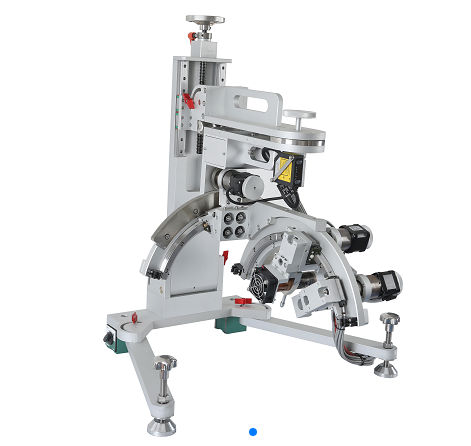
A Portable Multi-Functional Residual Stress Analyzer
2025-11-18 09:13The TDTC-150 is a lightweight Theta/Theta X-ray stress analyzer, specifically designed for laboratory and on-site testing. It enables rapid measurement of material residual stress, retained austenite content, and analysis of alloy structure and phase composition.
Formation Mechanism of Residual Stress
Residual stress arises from non-uniform deformation during various material processing stages. In forming processes such as rolling, forging, extrusion, drawing, bending, and stamping, differences in deformation between the surface layer (plastic deformation) and the core (primarily elastic deformation) lead to the generation of residual stress.
During cutting and grinding, intense compression, shear, and friction induced by tools or grinding wheels cause significant plastic deformation in the surface layer of the workpiece, and may even alter the microstructure, thereby forming residual stress.
Additionally, surface treatment processes such as shot peening, sandblasting, and roller pressing induce localized plastic flow (manifested as surface extension) through high-speed projectile impacts or roller compression, also resulting in residual stress.
Four Core Testing Functions
Residual Stress Analysis
Supports standard sin²ψ, side-inclination, and oscillation measurement methods
Accurately determines principal stress and shear stress components
Retained Austenite Analysis
Utilizes the four-peak method for retained austenite content measurement
Integrates fully automated data processing and result calculation
Diffraction Phase Analysis
Resolves crystal structure characteristics
Determines chemical composition content and distribution status
Grain Size Analysis
Provides grain size analysis capabilities ranging from the nanoscale to sub-micron dimensions
Key Instrument Features
Advanced Control System: Employs a modular PLC design for intuitive and convenient operation
Lightweight Structural Design: Compact and portable, ideal for rapid on-site testing
High-Precision Measurement: Equipped with a high-accuracy fully closed-loop vector drive servo system to ensure measurement reliability
Simplified Operation Process: Integrated Windows OS and automation functions support one-click testing and real-time result display
Wide Material Adaptability: Suitable for various metallic materials such as carbon steel, alloy steel, and titanium alloy, as well as glass, nickel-based materials, and composite materials
Efficient Data Acquisition: Features a multi-channel silicon strip line detector, offering noise-free performance, high-intensity measurement, and rapid data collection.

